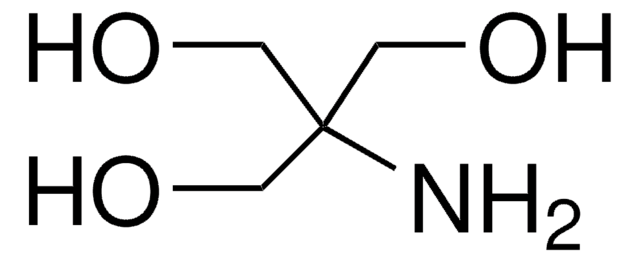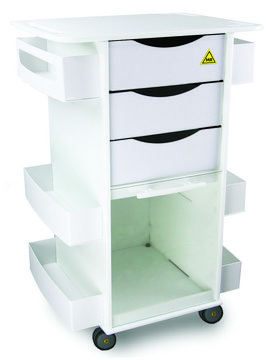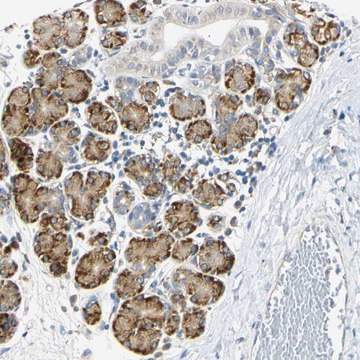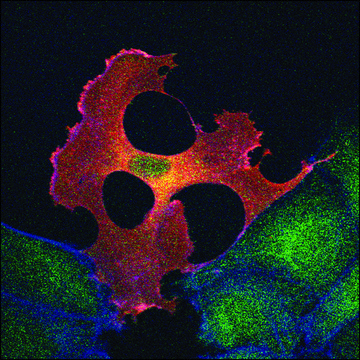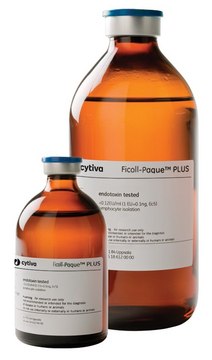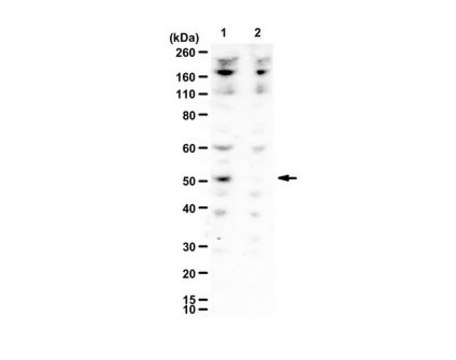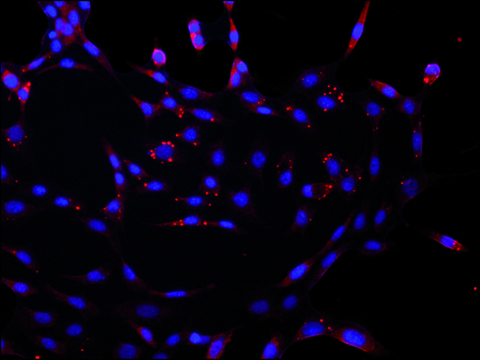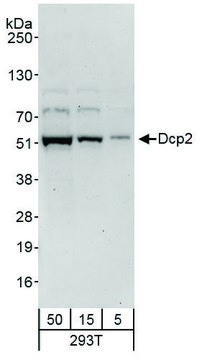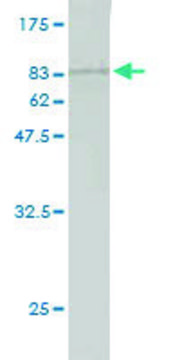WH0000845M1
Monoclonal Anti-CASQ2 antibody produced in mouse
clone 1B6, purified immunoglobulin, buffered aqueous solution
Synonym(s):
Anti-calsequestrin 2 (cardiac muscle)
About This Item
Recommended Products
biological source
mouse
Quality Level
conjugate
unconjugated
antibody form
purified immunoglobulin
antibody product type
primary antibodies
clone
1B6, monoclonal
form
buffered aqueous solution
species reactivity
human
technique(s)
indirect ELISA: suitable
western blot: 1-5 μg/mL
isotype
IgG2bκ
1 of 4
This Item | D6319 | PLA0262 | WH0083594M1 |
|---|---|---|---|
| antibody form serum | antibody form affinity isolated antibody | antibody form affinity purified immunoglobulin | antibody form purified immunoglobulin |
| biological source rabbit | biological source rabbit | biological source rabbit | biological source mouse |
| species reactivity mouse, human | species reactivity rat, mouse, human | species reactivity human | species reactivity human |
| Gene Information human ... DCP2(167227) | Gene Information human ... DCP2(167227) | Gene Information rabbit ... Dcp2(167227) | Gene Information human ... NUDT12(83594) |
| clone polyclonal | clone polyclonal | clone - | clone 3F7, monoclonal |
| UniProt accession no. | UniProt accession no. | UniProt accession no. | UniProt accession no. |
General description
Immunogen
Sequence
EEGLNFPTYDGKDRVVSLSEKNFKQVLKKYDLLCLYYHEPVSSDKVTQKQFQLKEIVLELVAQVLEHKAIGFVMVDAKKEAKLAKKLGFDEEGSLYILKGDRTIEFDGEFAADVLVEFLLDLIEDPVEIISSKLEVQAFERIEDYIKLIGFFKSEDSEYYKAFEEAAEHFQPYIKFFATFDKGVAKKLSLKMNEVDFYEPFMDEPIAIPNKPYTEEELVEFVKEHQRPTLRRLRPEEMFETWEDDLNGIHIVAFAEKSDPDGYEFLEILKQVARDNTDNPDLSILWIDPDDFPLLVAYWEKTFKIDLFRPQIGVVNVTDADSVWMEIPDDDDLPTAEELEDWIEDVLSGKINTEDDDEDDDDDDNSDEEDNDDSDDDDDE
Features and Benefits
Physical form
Legal Information
Not finding the right product?
Try our Product Selector Tool.
Storage Class
10 - Combustible liquids
flash_point_f
Not applicable
flash_point_c
Not applicable
ppe
Eyeshields, Gloves, multi-purpose combination respirator cartridge (US)
Choose from one of the most recent versions:
Certificates of Analysis (COA)
Don't see the Right Version?
If you require a particular version, you can look up a specific certificate by the Lot or Batch number.
Already Own This Product?
Find documentation for the products that you have recently purchased in the Document Library.
Articles
Glycosyltransferases were initially considered to be specific for a single glycosyl donor and acceptor, which led to the one enzyme-one linkage concept. Subsequent observations have refuted the theory of absolute enzymatic specificity by describing the transfer of analogs of some nucleoside mono- or diphosphate sugar donors.
Our team of scientists has experience in all areas of research including Life Science, Material Science, Chemical Synthesis, Chromatography, Analytical and many others.
Contact Technical Service